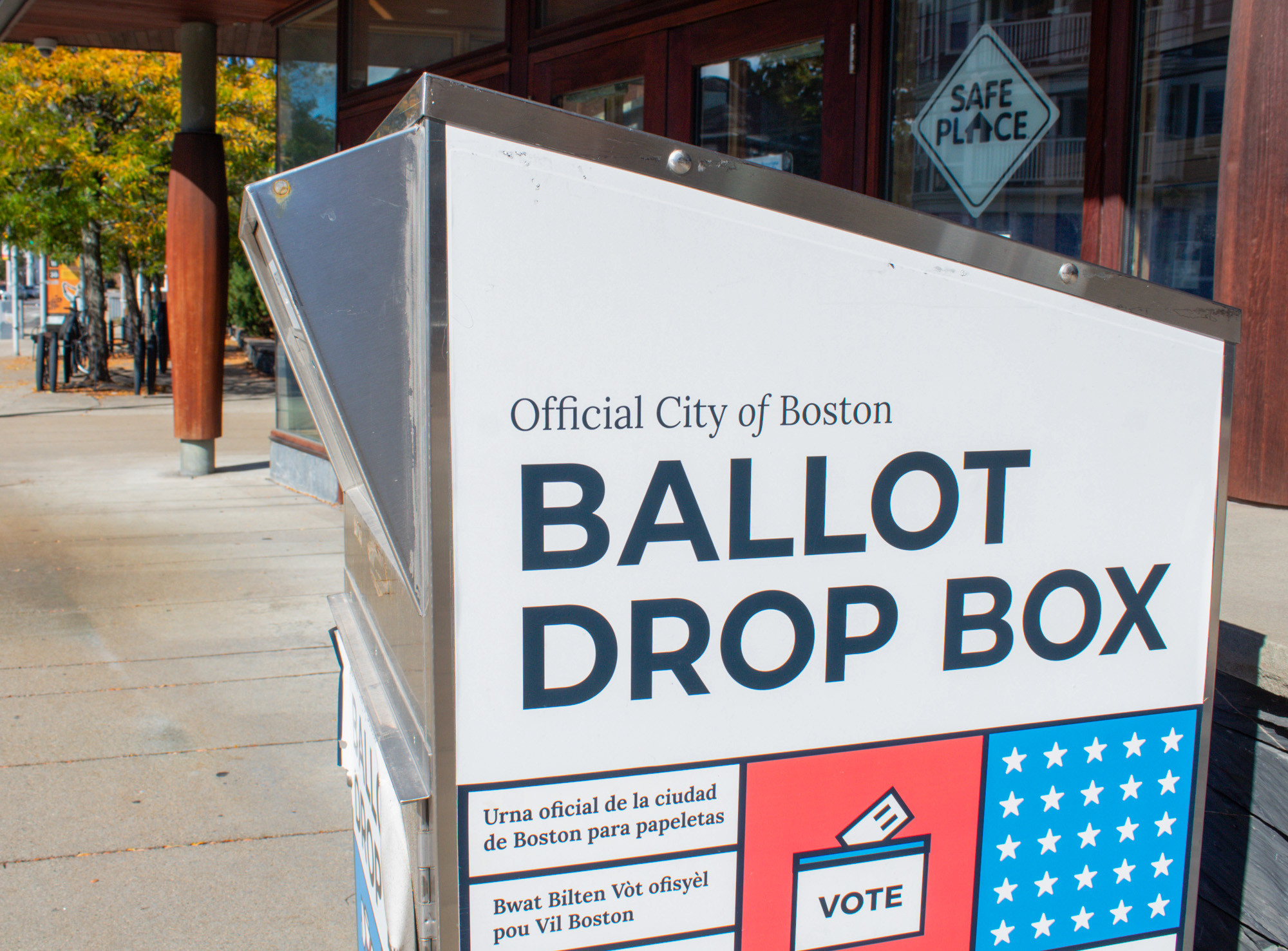Boston University students and faculty are stressing the importance of voting this November in light of a recent movement to withhold votes in protest of the 2024 Presidential Election.

In a WBUR poll published on Sept. 23, 31% of poll respondents answered “yes” when “asked if the country is headed in the right direction.” The poll credited younger voters as being the most “critical” when it came to the future of the United States.
The poll consisted of 800 likely voters in Massachusetts, and was conducted from Sept. 12-18 by the MassINC Polling Group with funding from the Knight Election Hub, according to WBUR.
Arjun Vishwanath, an assistant professor of political science at BU, said 31% is higher than he would have guessed.
“A lot of people, when they take these surveys, they oftentimes tend to think more negatively,” Vishwanath said. “[They might] think that things are going in the wrong direction, even if in a different context they might feel optimistic about the way things are going.”
Jacob Brown, also an assistant political science professor, said polarized elections have bigger risks for the losing party.
“When [there’s] a bigger difference between the two candidates, there’s a higher cost, so to speak, to your side not winning,” Brown said. “That raises the stakes of the election and raises the incentive to vote.”
With the Israel-Hamas war ongoing in the Middle East, a movement of “uncommitted” voters has risen across the country. This movement is in protest of the Biden-Harris administration’s lack of intervention in Gaza.
The Uncommitted Movement is a pro-Palestinian organization that announced it would endorse neither Vice President Kamala Harris nor third-party candidates. According to ABC, the movement was founded to encourage voters to vote uncommitted in the primaries to protest Biden’s stance on the Israel-Hamas war.
The Uncommitted Movement consists of four phases: encouraging advocacy, bringing their “Ceasefire, Anti-War, Pro Peace narrative” to the Democratic National Convention, keeping anti-war voters engaged through November and “wielding collective power.” Its goal is to bring foreign policy prioritizing “justice, peace, human rights and freedom for Palestinians,” according to its website.
Vishwanath said while the democratic system is founded with participation as an important component, it is not “grievously wrong in a moral sense” to choose to abstain from voting.
“There’s lot of reasons why people may not vote,” Vishwanath said. “They may not have the time to vote. They may not feel like they know that much about the issues. They may be disaffected by the political system and not think their vote matters.”
He said “conscientiously objecting” is a “core part of the democratic tradition.” Apart from voting or abstaining, Vishwanath said other ways citizens can participate in a democracy include “peacefully protesting, contacting office holders and raising money on behalf of candidates or ballot issues.”
Junior Greg Leung said the Uncommitted Movement is “not an effective way” to “hold those in power accountable.”
“I applaud the sentiments of what they’re trying to do in terms of issue advocacy, but I think the way that they’re doing it is going to lead to great amounts of harm if they succeed,” Leung said. “I would just ask young voters to consider the future they want to build for themselves.”
Brown said turnout gaps amongst different groups can lead to inequalities if they do not vote.
“Even if an individual vote may not matter, that small percentage change in turnouts by groups might produce even more inequality downstream,” Brown said.
Leung encouraged people to also cast votes in local ballots, not just the presidential race. He said local races “can be more impactful to your daily life.”
“People need to recognize that they’re not just voting for the next president,” Leung said. “They’re also voting for people who are going to write their laws on the federal, state and local levels and also judges and ballot propositions.”
Like Leung, other BU students agreed that those who are eligible should exercise their right to vote. They listed abortion rights, climate change and gun violence as key issues for this election.
Junior Juliana Zraick said those who “have the privileges of being a citizen,” such as the right to vote, should use them.
“This really is not an election to miss out on,” Zraick said. “For me, it’s so important to vote because my rights over being able to have choice over my body are at risk of being completely taken away.”
Senior Ethan Gasse said voting is a “moral obligation” for citizens who are able to exercise the right, as well as an opportunity to “show how you are feeling.”
“If you’re throwing away your vote because of the conflict right now, I think that’s not a very good idea,” Gasse said. “It’s not going to have the effect of protest that people think it’s going to have.”
Junior Emily Rotondi, communications liaison for BU College Democrats, said she considers not only how her vote will affect herself, but how it will affect people across the country. Voting, she said, is an important way to have your voice heard.
“When you look at politicians, I think what people actually want isn’t really happening in politics,” Rotondi said. “I think voting is one of the few ways to have a voice, even if that means, unfortunately, voting for people that you may not like.”



















































































































